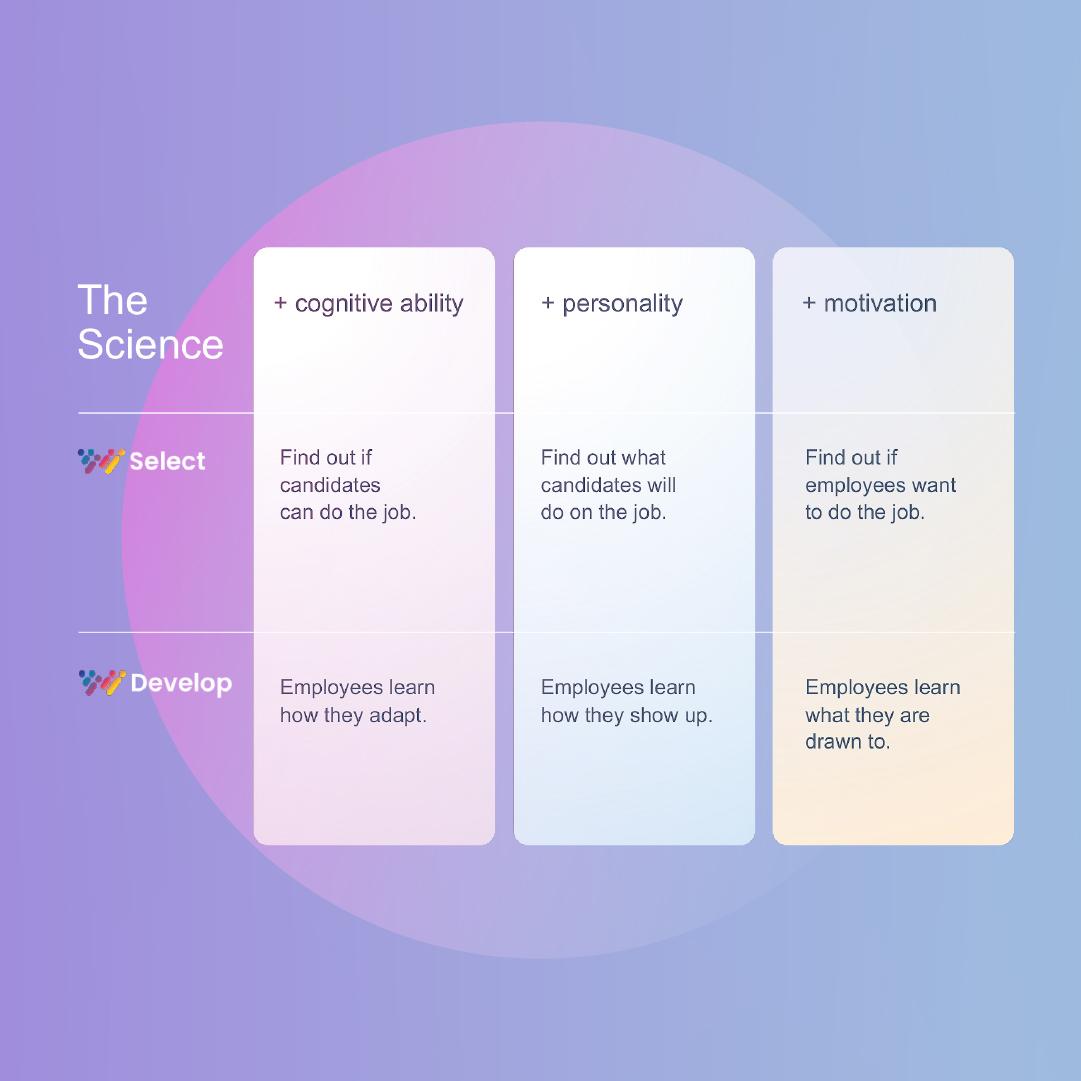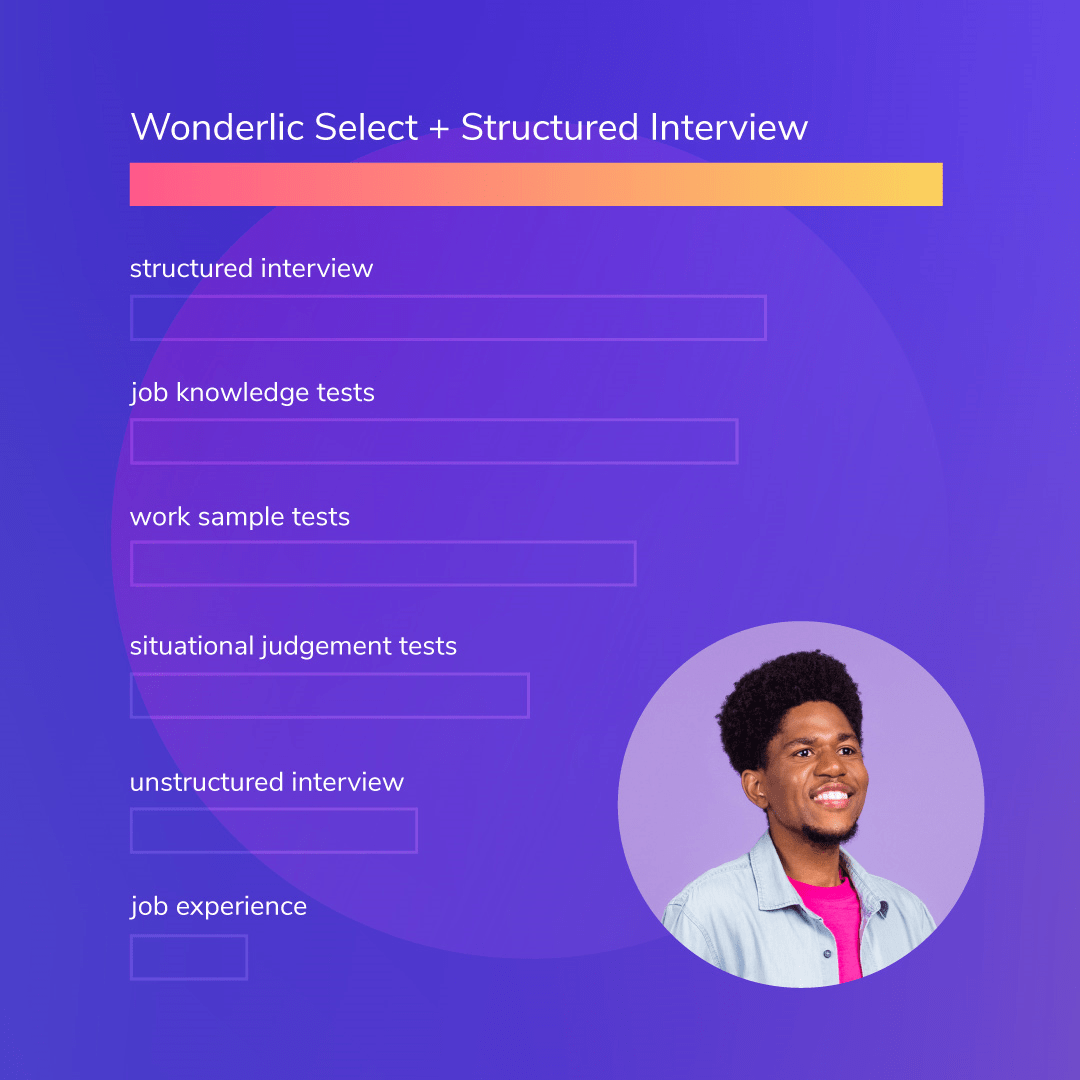Despite the reported job growth in recent months, organizations continue to struggle with persistent vacancies, turnover, and poor hiring outcomes. You may have tried increasing wages1 and work flexibility to compel talent to stay — with limited results.2 But there’s one strategy that hasn’t gotten as much attention, yet has the potential to transform the employee experience and the broader performance trajectory of your company. We’re talking about how you hire and develop first-line managers.
What is a first-line manager?
These are managers their first leadership role. By definition, these folks don’t have experience managing people. Typically, they were high performers in a previous, individual contributor role and then got promoted into a management position. While they came with strong practical skills, few are strong people managers right out of the gate.
That can be a problem. McKinsey finds that high-quality relationships with management are a massive driver of employee ‘life satisfaction.’ The benefits of selecting and developing people with good leadership foundations don’t end there. Research shows that effective managers with strong team relationships drive not just higher employee satisfaction, but also higher organizational performance.3
We’ll highlight a consistent and effective way to identify first-line leadership potential later in this post. But first, let’s unpack why hiring and developing better first-line managers can be a key strategy for reducing employee turnover and delivering stronger business results.
Here’s what’s ahead:
- Why the typical approach to first-line managers is failing
- How assessments help organizations hire the right person
- Spreading first-line impact through the organization and its culture with development
Why the typical approach to first-line managers is failing
Ill-equipped leaders are costing you. A recent Boston Consulting Group study found that having a “bad boss” is one of the main reasons why employees leave their jobs.4 In another study, six out of 10 workers said a bad boss was their reason for quitting.5 As SHRM President and CEO Johnny C. Taylor, Jr. put it, “there is no relationship in the workplace more powerful than the one between people managers, and employees.”6
Without the skills they need, inexperienced and undertrained early-stage managers also run a high risk of burning out.7 Recent Gartner survey results show that over half of managers are suffering from work-induced stress and fatigue.8 Employees state again and again that to feel engaged and successful, they need their managers to provide autonomy, be intentional, build trust, and be accountable. Without the tools to address these needs, many managers have a bad experience and revert back to being individual contributors.
Standard hiring and development practices aren’t helping
As mentioned, first-line managers frequently get promoted into that role because they were effective as individual contributors. In some cases, they may not be the right fit for a management position. Organizations might get lucky if that person happens to also have the desire and aptitude to lead. But that’s a roll of the dice. Being good at retail customer service, for example, or at inside sales, doesn’t make you effective at managing people.
Adding another disconnect to the mix: first-line manager training is often an afterthought. Research backs this up:
- 57% of managers say they “learned their leadership skills through trial and error.”9
- 10% of senior leaders say the training provided to first-line managers effectively prepares them.10
- 38% of managers who haven’t received any management training are looking for a new job.11
The training gap also affects employees. Nearly 6 in 10 American workers believe their managers would benefit from training on how to be better people managers.12 Without it, tens of thousands of inexperienced managers are engaged in an elaborate corporate experiment with their direct reports acting as non-consenting test subjects.
How can we change this? Start by changing how you hire.
How assessments equip organizations to hire the right first-line managers
The challenge of getting the right person into the first-time manager role is not difficult to address with effective approaches and tools. All it requires is a systemic, science-based approach that identifies leadership capabilities and motivation in your manager candidates.
At Wonderlic, our job-specific assessments measure three constructs that are highly predictive of success when hiring and developing talent for a specific role:
- Cognitive ability: Can they do the job?
- Motivation: Do they want to do the job?
- Personality: What will they do on the job?

Employee effectiveness, performance, and retention lie at the intersection of these three constructs. They are also the core of the Wonderlic Select assessment, providing every business using it with deep insights into what your candidate can do today and what they are equipped to do tomorrow. Leveraging multi-measure tools lets you fill open management roles with the best possible job fit.
Championing the best first-line manager candidate — from inside or outside
Utilizing pre-hire assessments such as Wonderlic Select enables organizations to quickly identify those candidates with the greatest potential to be successful in the job. HR teams can leverage it to determine the management potential of in-house candidates and assess candidates that apply from outside. The data from Wonderlic Select makes the hiring process faster, simpler, and less expensive. It also helps overcome the biases hiring managers may have for their favored candidates.
For example, the hiring manager may have already made up their mind to promote one of their direct reports, without knowing whether they can or want to do the job. This bias is easy to fall into, given the vast research showing the benefits of internal hires. Many employees would rather be managed by someone who got promoted; those who were passed over for the job particularly feel less of a morale hit; and promotions demonstrate an organization’s commitment to employee development. Best of all, organizations with a ‘from within’ focus outperform their competition in innovation, performance, and growth metrics.
Pair that with the costs of paying an external recruiter (an average of $4,700 per hire, according to SHRM) and absorbing a range of hard and soft costs that result in spending potentially double the manager’s salary in their first year on the job, and it’s clear why hiring managers and HR may want to avoid that. Additionally, the U.S. Department of Labor has put a price tag on the cost of a bad hire — estimating it to be up to 30% of a first-year salary13 and up to 50% for managerial roles.
For a concrete view into how our assessments save you time and money, feel free to check out our new ROI calculator.
These are compelling arguments. They are matched, however, by equally valid reasons for looking outside the company to fill a role (including fresh perspectives). Either way, assessment data offers a neutral counter-argument that can eliminate the personal or relational biases that hiring managers may not even know they have.
Spreading first-line impact through the organization and its culture
Focusing on more effective hiring for first-line managers is important for the way it increases their chances of longer-term success. It also improves retention and performance in the team members they lead — some of whom might become managers in the future. This has massive implications for workforce adaptability.
You are also strengthening your own leadership pipeline. Managing people well is hard. When first-time managers don’t get the support they need (training, mentoring, etc.), they often lead ineffectively — and frequently leave.
Hiring first-line managers that have what it takes to do that job is a good start, but it doesn’t end there. Organizations must also provide the development those managers need with a focused, job-and-person-specific development program. Assessments are indispensable here as well. Wonderlic® Develop provides first-line managers with self-awareness about the capabilities that come easily and the ones that require more effort, so they know what to focus on to improve in their roles.

HR leaders have the tools to place higher-performing first-line managers
We’ve covered the why, and the how. Now here’s the takeaway: Success as an individual contributor is a limited predictor of success in a first-line manager role. HR leaders that embrace a comprehensive, data-driven approach to hiring and developing managerial talent will achieve better results for their candidates and their organizations.
Learn more about how Wonderlic® Select provides scientifically valid assessment insights that help HR teams put the right candidates into the role the first time, every time.
To maximize existing employee potential and drive personal development at scale, Wonderlic® Develop will help you advance the critical capabilities and behaviors your first-line managers need.
[1] Fortune, “80% of companies plan to give raises in 2023, according to a new survey of nearly 5,000 participants”, 2023
[2] McKinsey & Company, “Winning back your workers”, McKinsey Quarterly 2022
[3] McKinsey & Company, “Stop wasting your most precious resource: Middle managers”, 2023
[4] Boston Consulting Group, “Why Deskless Workers Are Leaving — and How to Win Them Back”, 2022
[5] SHRM, “Toxic Workplace Cultures Hurt Workers and Company Profits”, 2019
[6] SHRM, “Survey: 84 Percent of U.S. Workers Blame Bad Managers for Creating Unnecessary Stress”, 2020
[7] Fast Company, “5 key skills new managers will need this year”, 2023
[8] Gartner, “Managers Are Failing, Here’s How HR Can Help Them”, 2023 webinar
[9] Fast Company, “5 key skills new managers will need this year”, 2023
[10] BetterUp, “New Managers: Developing Skills & Behaviors for Inspirational Leadership”, data cited from DDI World, “Finding the First Rung”, 2015
[11] Digits, “Management training – survey results” ,2021
[12] SHRM, “SHRM Survey: Workers Think Managers Need More Training”, 2020 [1] Northwestern University, “The Cost of a Bad Hire”, 2019, data cited from the U.S. Department of Labor
